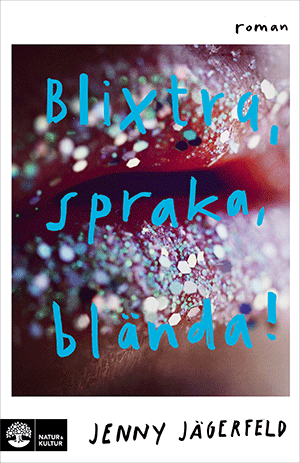BANJO BABY (BANJO BABY)
Jenny Jägerfeld

Sasha turned to me and stared deep into my eyes. As if she was trying to see through my soul.
– “Morty, you can’t care about what other people think. Besides, there are tons of famous and successful people who have Tourette’s.”
– “What? Like who?” I asked skeptically.
Sasha tapped on her phone for a few seconds before she shouted:
– “Mozart! Mozart had Tourette’s!”
– “What? Mozart had Tourette’s? Are you talking about… about Wolfgang Amadeus Mozart?”
-“No, I’m talking about Gösta Marmeladus Mozart, his brother. Of course I mean Wolfgang! Listen to this: ‘There are signs that Mozart had Tourette’s syndrome. People close to him described that he often made grimaces or had facial twitches, moved his hands and feet involuntarily and repeatedly, and could suddenly sound like a cat. Some researchers have interpreted these behaviors as motor and vocal tics, which are typical of Tourette’s syndrome.’”
– “What? He sounded like a cat? That’s exactly like me!” I said and meowed so realistically that one of the rabbits suddenly hopped away into a little wooden hut.
In Banjo Baby, the standalone sequel to the smash hit Comedy Queen, we finally get to know Sasha’s wonderful best friend Märta a little better. A girl with a passion for banjo, a brand-new video channel and a secret she’s not quite sure how to share.
One day, Märta gets a message from a girl named Alma de Palma, who also plays the banjo and they start messaging each other and quickly become very close – they talk about everything, or almost everything. Because how do you tell someone you like that you have Tourette’s syndrome and might suddenly start stomping your foot or meowing like a cat?
With her unique mix of humor and emotional depth, Jenny Jägerfeld tells a story about love and friendship – but also about the tricky and sometimes rather embarrassing situations you can end up in when you don’t always behave the way people expect.
Rights
Sweden: Rabén & Sjögren
Reviews
“The story becomes both funny and engaging as Minnow tackles everyday life with her banjo always at hand while also dealing with her disability. Banjo Baby is a story where friendship, love, and the courage to be yourself take center stage. […] this is a warm, humorous, and charming sequel [to Comedy Queen].” Rating: 4
BTJ / SWE










